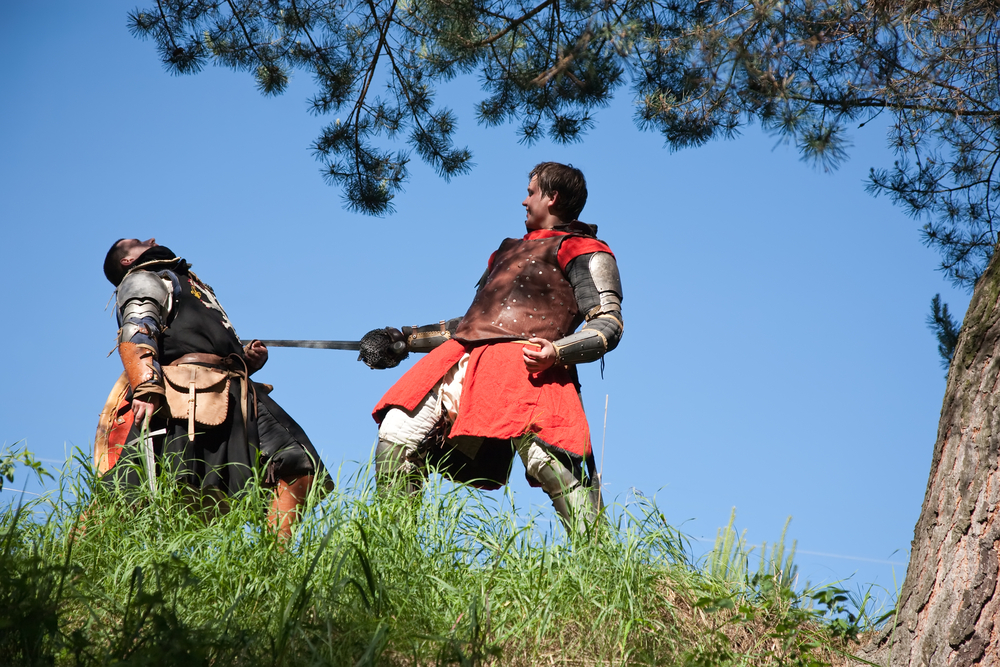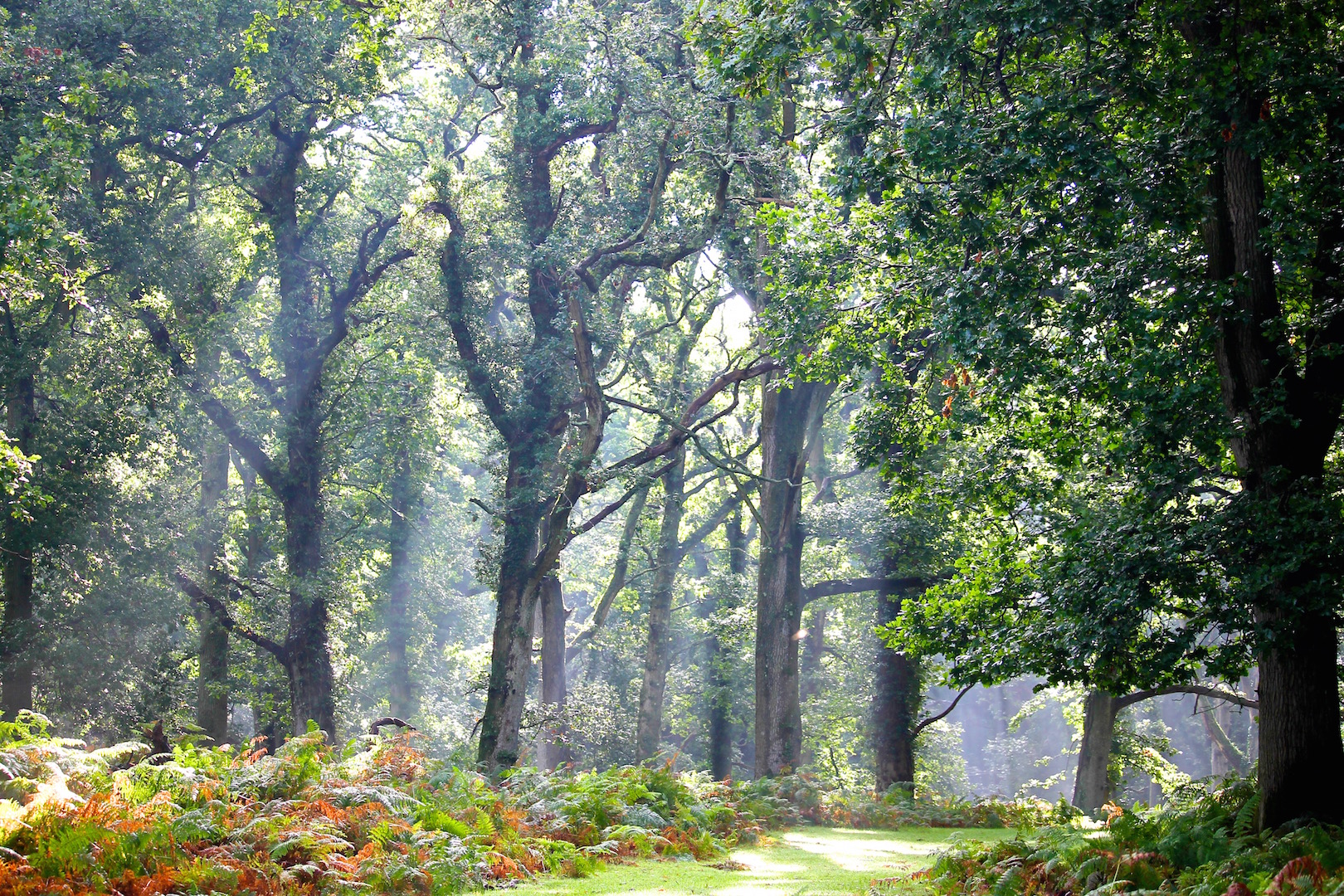
The New Forest was a popular venue for duels, which originate from the medieval chivalric tradtion.
In October 1816 it was reported in The Sporting Magazine that a duel had taken place ‘in the neighbourhood of the New Forest’ between a Capt. Fairman and the Hon. Butler Danvers, which was attended by their respective surgeons and seconds. However, things did not go smoothly for the two gentlemen trying to settle their differences in the time-honoured fashion. Apparently the police were aware that the confrontation, which had been planned for several days, was due to take place and were determined to prevent it. Thus constables pursued the two protagonists and their entourage across country for most of the morning. The duelling men had apparently attempted many times to take aim and fire at one another but had been prevented from doing so by the nearness of their pursuers. In the end they had to fire at one another while being charged-down by the police. Both men were arrested and promptly taken to the home of county magistrate Mr Stourges Bourne, where they were bound over to preserve the peace and fined 500l. each. Sadly the report does not mention what caused the two men to undertake such determined single combat in the first place.
Chivalric codes of conduct
The upper echelons of society used duelling foremost as a way of deciding a point of honour, rather than necessarily for exacting revenge or actually killing their opponent, and the cause of the quarrel could be very trifling indeed. Duelling had a strict code of conduct that the combatants were expected to observe. Indeed, many books were written on the subject to aid those unfamiliar with the etiquette of single combat. Duels on the New Forest were not uncommon and one of the first documented examples occurred in the twelfth century. The last duel between Englishmen, which involved a fatality, occurred in 1845 not far from the New Forest. The Forest would have been a place where duellists could sword-fight or, later in history, shoot pistols at one another generally undisturbed. It was not necessarily a private matter either because society gossip would know and repeat what slight, insult or scandal had provoked the duel in the first place, which was probably why the outcome of the duel would be widely reported in the newspapers. Duelling has its origins in chivalry, hence the elaborate rules and manners associated with it, and its demise was due to it becoming socially unfashionable, rather than because of laws imposed against it.
Riding the skimmington or rough music
The common people also had their methods of soothing social tensions and often resorted to ‘riding the skimmington’ or creating ‘rough music’, which consisted of making lots of noise on pots and pans outside the house of the person, or persons, believed to have caused offence to members of the community. In January 1871, a skimmington was reported at Eling where the home of Thomas and Annie Stephens was being noisily ‘serenaded’ by a group of boys. Mrs Stephens came out of the house to fire a warning shot from a pistol, to frighten the boys away, and shot Gilbert Broomfield in the head wounding him. Broomfield admitted that he was on bad terms with the Stephens but said that he only happened to be passing by at the time with a galvanised iron bucket, with which he was going to use for a wash. It was generally agreed though that the shooting was an unfortunate accident. The jury acquitted Mr Stephens but Mrs Stephens, who fired the shot, was convicted.

When all the duelling and rough music had been done, harmony returned to the New Forest.


You must be logged in to post a comment.